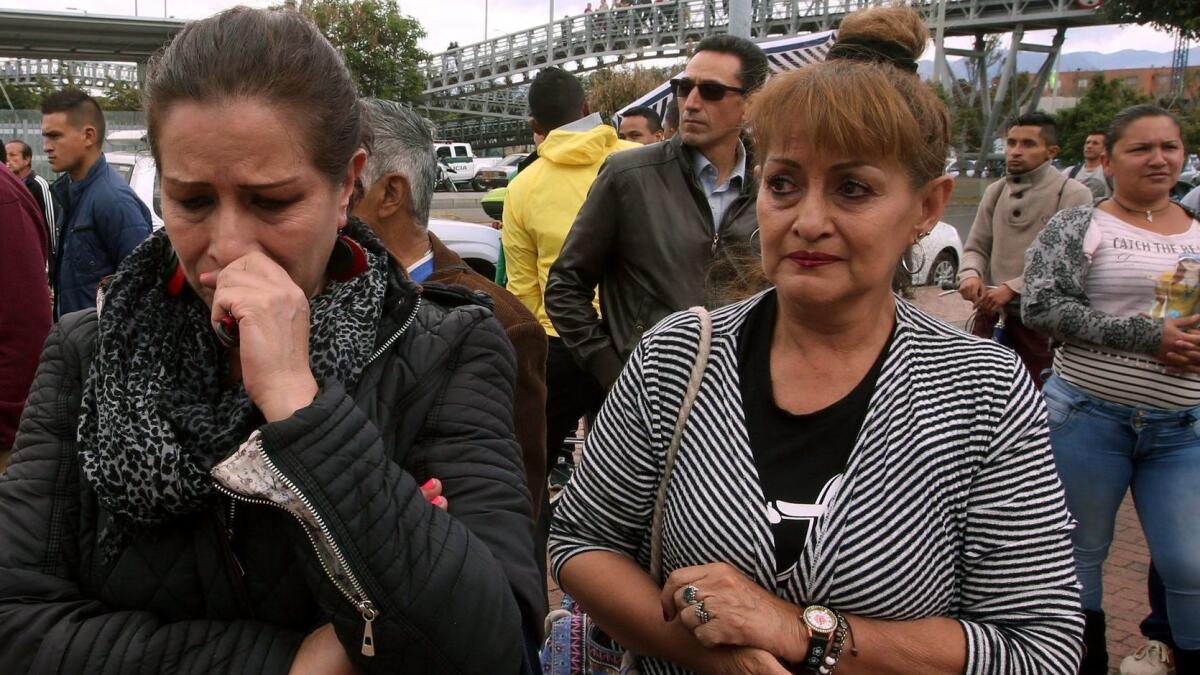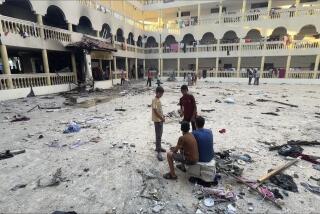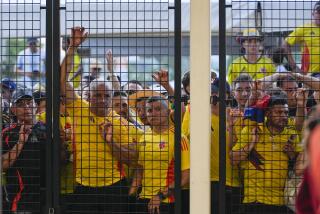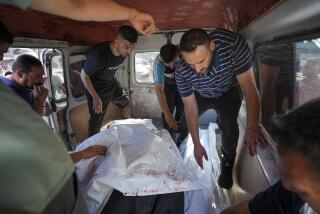Colombia police academy car bombing kills at least 10

In what Colombian President Ivan Duque termed a terrorist attack, an explosion at a police academy in Bogota, the capital, left at least 10 people dead and 54 wounded Thursday.
The explosion at the Francisco de Paula Santander Police Academy was caused by a car bomb that detonated near the entrance, according to the Defense Ministry. Wounded cadets were taken to hospitals, and officials issued an appeal for blood donations.
Suspicions as to who carried out the attack immediately centered on the leftist rebel groups National Liberation Army, known by its Spanish initials, ELN; and Popular Liberation Army, or EPL. Both have been classified as terrorist groups by the U.S. government, but neither group had taken responsibility by midday.
Colombia’s largest rebel group, the Revolutionary Armed Forces of Colombia, or FARC, signed a peace deal in 2016, with 14,000 fighters and militia members demobilizing after half a century of conflict, and has has transformed into a political party. But the ELN and EPL remain at war with the government. Talks between the government and the ELN, the stronger of the two groups, have stalled over preconditions set by Duque.
Duque and Defense Minister Guillermo Botero arrived at the scene of the bombing by helicopter, where they were joined by several military and police officials to inspect the damage.
Addressing reporters at the academy, Duque slammed what he called a “cowardly attack” that targeted “unarmed students and youths.”
“This terrorist act will not remain unpunished,” he said. “We have always defeated terrorism. They will not make us give way. We will unite against violence and support the armed forces to capture and punish those responsible for this barbarity.”
The bomb consisted of 180 pounds of pentolite explosive in a light truck, said attorney general Nestor Humberto Martinez, who appeared at the briefing with Duque.
After stopping and identifying himself at one of the academy’s entrances, the driver drove through the checkpoint and continued for 300 yards inside the grounds before setting off the explosives, Martinez said. The force of the explosion broke windows in buildings several blocks away.
The truck had recently received a state-mandated inspection in the eastern city of Arauca, on the border with Venezuela, Martinez said.
Television images showed the vehicle’s charred remnants.
“We will get to the bottom of the facts,” Duque said in a statement issued earlier from the northwestern city of Quibdo, where he had been scheduled to host a meeting of national and local leaders, before he rushed back to Bogota.
Bogota Mayor Enrique Penalosa said the bomb did not appear to be part of a coordinated series of attacks.
“All Colombians can be sure that we will not be intimidated by this terrorist act,” Penalosa said. “All should unite against terrorism.”
Names of the dead were not immediately released. But Ecuadorean President Lenin Moreno said on social media that Ecuadorean citizen Erika Chico was killed.
Pastor Alape, a FARC spokesman and former leader during the years of conflict, said the bombing appeared to be an effort by unnamed people to subvert a peace deal with the ELN and “delegitimize” social movements.
Kraul is a special correspondent.
More to Read
Sign up for Essential California
The most important California stories and recommendations in your inbox every morning.
You may occasionally receive promotional content from the Los Angeles Times.









